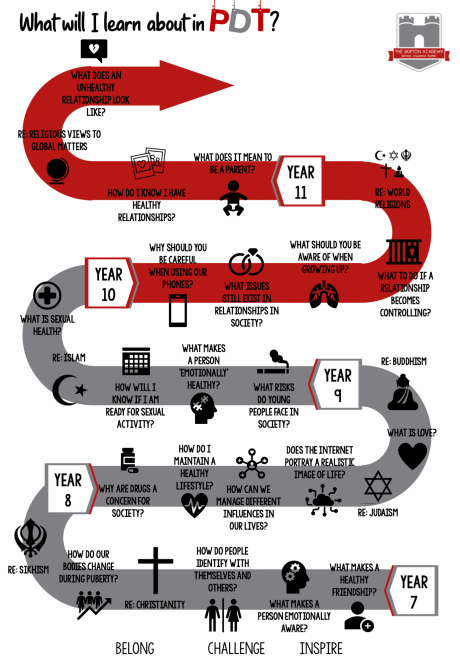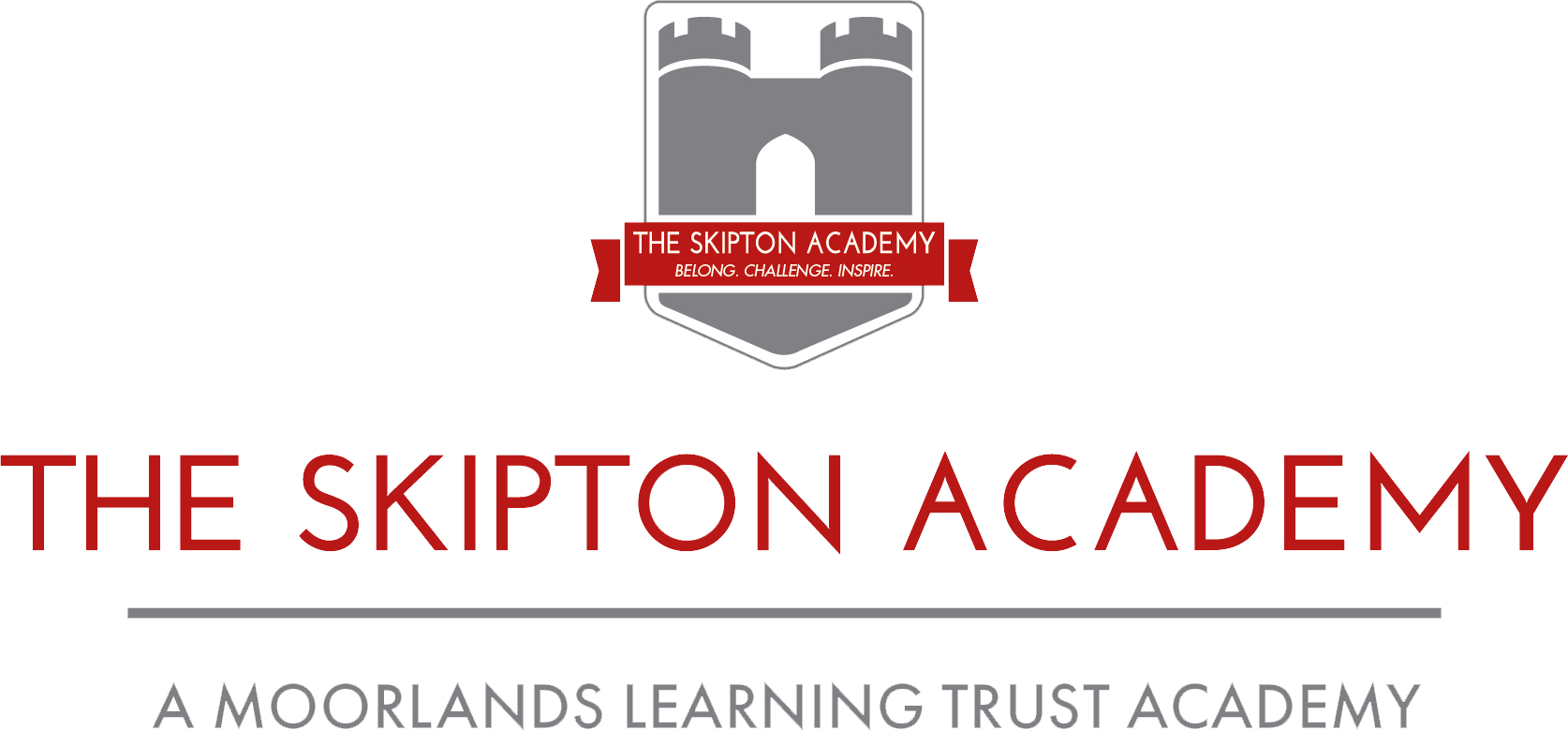Personal Development Time and RE
At The Skipton Academy, we believe that all students deserve an education which fully prepares them for their next steps in life, allowing them to succeed and appreciate the diversity of the world around them. As such, Personal Development Time (PDT) is an important part of the Academy’s curriculum and forms a central part of its effort to support Personal Development. Whilst we value the importance of academia, we also put significant emphasis on mental health and wellbeing, ensuring that students are skilled in managing their own mental health and if this is not possible, reaching out for support where necessary.
PDT provides students with the opportunity to acquire the knowledge and understanding necessary to enable them to make informed decisions about all aspects of their lives as they develop from children into young adults. Students will also develop tolerance towards others (including people with various protected characteristics, as outlined in the Equality Act 2010) with the aim of nurturing globally aware citizens who extend their knowledge beyond their own experiences in life.
Personal Development Time is delivered to all students in discrete lessons and supported by several drop down days across the academic year. The Personal Development Time curriculum is formed by the combination of several statutory disciplines, including:
- Relationship and Sex Education statutory guidance
- Citizenship national curriculum
- Religious Education
In addition to their timetabled PDT sessions, a range of topics relating to RSE and citizenship are delivered in other subject areas. For example, in science, students learn about puberty and the physiological change which occur as they progress through puberty. In order to maintain compliance with all of the above mentioned, we have documented where such teaching occurs to allow us to streamline our lesson content during PDT lessons.
Due to the diversity of content delivered in the PDT curriculum and nature of the topics covered, PDT is designed with a vertical knowledge structure in place, with knowledge progressively becoming more challenging, whilst maintaining age appropriateness. For example, we look at the definition and stigmas surrounding mental health prior to investigating different strategies which can be employed to maintain a state of emotional and mental wellbeing. In order to make this vertical knowledge structure explicit, six golden threads run through the curriculum:
- Rights, Responsibilities and British Values
- Celebrating Diversity and Equality
- Relationship and Sex Education
- Staying Safe, Online and Offline
- Health and wellbeing
- Life in the wider world
As mentioned, careful consideration has been given to ensure age appropriateness of content delivered in lessons. For example, in Year 7, students acquire knowledge relating to the characteristics of healthy and toxic friendships and approach the topic of consent by looking at everyday situations where consent is required. As students work through the curriculum, they then revisit these topics with more of a focus on healthy romantic and intimate relationships.
Expectations in PDT lessons are high, including for our most vulnerable and those with special educational needs and disabilities. A culture of mutual respect and confidentiality is fostered in all PDT lessons to ensure that students feel comfortable to discuss issues which might face them or family members. Students are challenged appropriately to acquire the knowledge, skills and attitudes for lifelong learning so that they become more adaptable and resilient global citizens who are able to analyse challenges they might face in life through a range of different lens.














